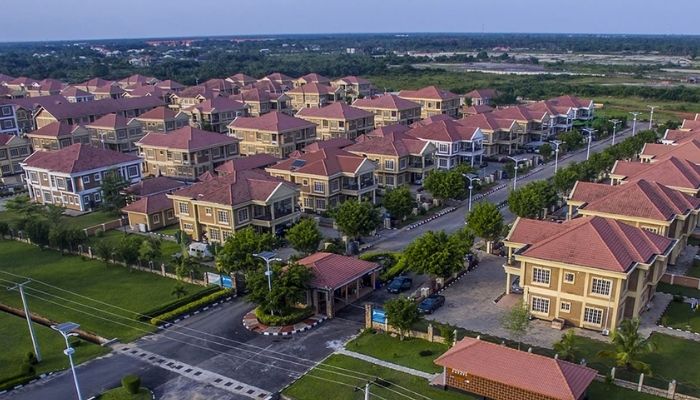Understanding Nigeria’s Affordable Housing Crisis and Potential Solutions
Nigeria, the most populous country in Africa, has long faced a significant challenge in providing affordable housing to its rapidly growing population. With an estimated population of over 200 million people and an annual population growth rate of around 2.5%, the demand for housing is at an all-time high. However, the supply of affordable housing has failed to meet this growing demand, leaving millions of Nigerians living in inadequate or overcrowded conditions.
In this article, we’ll take a deep dive into the affordable housing crisis in Nigeria, examining the root causes, the consequences of this crisis, and potential solutions that could alleviate the situation and provide sustainable housing for all Nigerians.
The Scale of the Affordable Housing Crisis in Nigeria
Nigeria’s housing deficit is estimated to be over 22 million units, with this number expected to continue growing if no significant intervention takes place. This shortfall is primarily seen in urban areas like Lagos, Abuja, and Port Harcourt, where rapid urbanization and rural-urban migration have led to a severe housing shortage.
The problem is not just about the number of houses available, but also the affordability of housing options for the average Nigerian. According to reports, more than 80% of Nigerians cannot afford decent housing, especially in major cities. The lack of affordable housing options is not only a social issue but also an economic one, contributing to the rise of informal settlements and slums, as well as an increase in homelessness.
Factors Contributing to the Affordable Housing Crisis
Several factors have contributed to the worsening affordable housing crisis in Nigeria. Below are the primary reasons for the shortage of affordable housing in the country:
1. High Construction Costs
One of the main drivers of the housing crisis in Nigeria is the high cost of construction materials. The cost of building materials such as cement, steel, and other essential components has consistently increased, primarily due to the depreciation of the Naira and Nigeria’s dependence on imported materials. These increased costs are passed on to buyers, making it difficult for developers to build affordable homes that average Nigerians can afford.
- Why does this matter? The lack of affordable construction materials makes it difficult for both government agencies and private developers to produce housing at a scale and price point that meets the needs of lower-income Nigerians.
2. Limited Access to Financing
Access to mortgage financing in Nigeria is another significant barrier to affordable housing. While there are mortgage banks in the country, the mortgage market is underdeveloped, with only a small percentage of Nigerians able to access loans. The interest rates on mortgages are often prohibitively high, averaging around 18-25% annually, far above what the average Nigerian can afford. Additionally, the stringent requirements, including high down payments and proof of formal employment, limit access to financing for many people.
- Why does this matter? Without affordable financing options, many Nigerians cannot purchase homes, which leads to an over-reliance on the rental market and informal housing solutions.
3. Inadequate Government Intervention
While the Nigerian government has introduced several programs aimed at addressing the housing crisis, the efforts have often been insufficient and poorly implemented. Public housing schemes, such as the Federal Government’s National Housing Fund (NHF), are underfunded and plagued by inefficiencies, which have limited their impact. Additionally, corruption and bureaucratic delays often prevent affordable housing initiatives from reaching the people who need them most.
- Why does this matter? Lack of adequate government intervention in the housing sector has left the private sector to fill the gap, but due to high construction costs and limited financing, the private sector is unable to provide affordable housing at scale.
4. Rapid Urbanization and Population Growth
Nigeria’s cities, particularly Lagos and Abuja, are experiencing rapid urbanization as people from rural areas flock to urban centers in search of better job opportunities and a higher standard of living. This has put tremendous pressure on the existing housing stock, resulting in overcrowded neighborhoods, rising rents, and an increase in informal settlements.
- Why does this matter? As more people migrate to urban areas, the demand for affordable housing increases, outpacing the capacity of the housing market to keep up.
5. Land Use Regulations and Title Disputes
Land use regulations in Nigeria are often complex and restrictive, contributing to the slow pace of housing development. Additionally, disputes over land titles, inadequate land documentation, and issues with acquiring land titles further hinder the development of new housing projects. These challenges are particularly evident in large cities, where developers struggle to secure land for affordable housing projects.
- Why does this matter? These legal and regulatory barriers make it more difficult to develop affordable housing in urban areas, where the demand is greatest.
Consequences of the Affordable Housing Crisis
The shortage of affordable housing in Nigeria has far-reaching consequences, not only for individuals and families but also for the country as a whole.
-
Rise of Informal Settlements: As the formal housing market fails to meet demand, many Nigerians are forced to live in informal settlements or slums. These areas are often overcrowded, lacking basic infrastructure such as sanitation, electricity, and clean water. This exacerbates public health issues, including the spread of diseases, and leads to unsafe living conditions.
-
Increased Homelessness: With the lack of affordable housing options, many Nigerians, particularly in urban centers, face the harsh reality of homelessness. This contributes to rising poverty levels and social instability.
-
Strain on Public Services: Overcrowded neighborhoods and informal settlements put significant pressure on public services such as healthcare, education, and security. This hampers the overall development of cities and exacerbates the poverty cycle.
Potential Solutions to Nigeria’s Affordable Housing Crisis
To address the affordable housing crisis in Nigeria, a combination of policy reforms, private sector involvement, and innovative financing models is needed. Here are some potential solutions:
1. Government Policy and Regulatory Reform
The Nigerian government must prioritize housing development by simplifying land acquisition processes, reducing the cost of land, and enforcing better land use regulations. A more transparent and accessible system for obtaining land titles and permits would help accelerate the development of affordable housing projects.
- What can be done? The government should also provide incentives, such as tax breaks and subsidies, to developers who focus on building affordable housing.
2. Affordable Financing and Mortgage Options
To make homeownership accessible to more Nigerians, the government should work with financial institutions to create more affordable mortgage products with lower interest rates and smaller down payment requirements. Additionally, expanding access to micro-financing and credit for low-income earners could allow more people to purchase homes.
- What can be done? The Federal Mortgage Bank of Nigeria (FMBN) could work with commercial banks to create innovative housing finance solutions tailored to lower-income households.
3. Public-Private Partnerships (PPP)
The Nigerian government should collaborate with the private sector to build affordable housing at scale through Public-Private Partnerships (PPP). This model allows the government to provide the necessary infrastructure and land while developers can bring in capital, construction expertise, and technology to reduce costs.
- What can be done? PPPs can help ensure that the private sector’s expertise is harnessed to deliver large-scale affordable housing developments at a cost that is within reach for the average Nigerian.
4. Use of Alternative Construction Technologies
To reduce construction costs, developers could explore alternative building technologies such as prefabricated housing, 3D printing, and modular homes. These technologies offer the potential for faster, more affordable construction, and could help alleviate the housing shortage.
- What can be done? The Nigerian government and private developers should invest in the research and adoption of these cost-effective construction methods.
5. Urban Regeneration and Slum Upgrading
Instead of solely focusing on new housing developments, there should be a concerted effort to regenerate and upgrade existing slums and informal settlements. This would involve improving infrastructure, providing better living conditions, and ensuring access to essential services.
- What can be done? Government and non-governmental organizations should collaborate on slum redevelopment projects that provide affordable housing, improved sanitation, and better public services for residents.
Conclusion
The affordable housing crisis in Nigeria is a pressing issue that affects millions of Nigerians, particularly in major urban areas. However, with the right mix of government intervention, private sector involvement, and innovative solutions, it is possible to alleviate this crisis. By focusing on affordable housing finance, regulatory reforms, and alternative construction technologies, Nigeria can begin to address the severe housing deficit and provide decent homes for its growing population.
For investors, developers, and policymakers, the affordable housing sector represents a tremendous opportunity to not only contribute to social development but also to reap the financial rewards of meeting the unmet demand for housing in the country.

